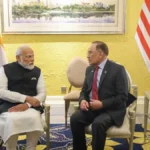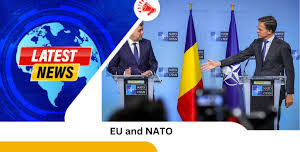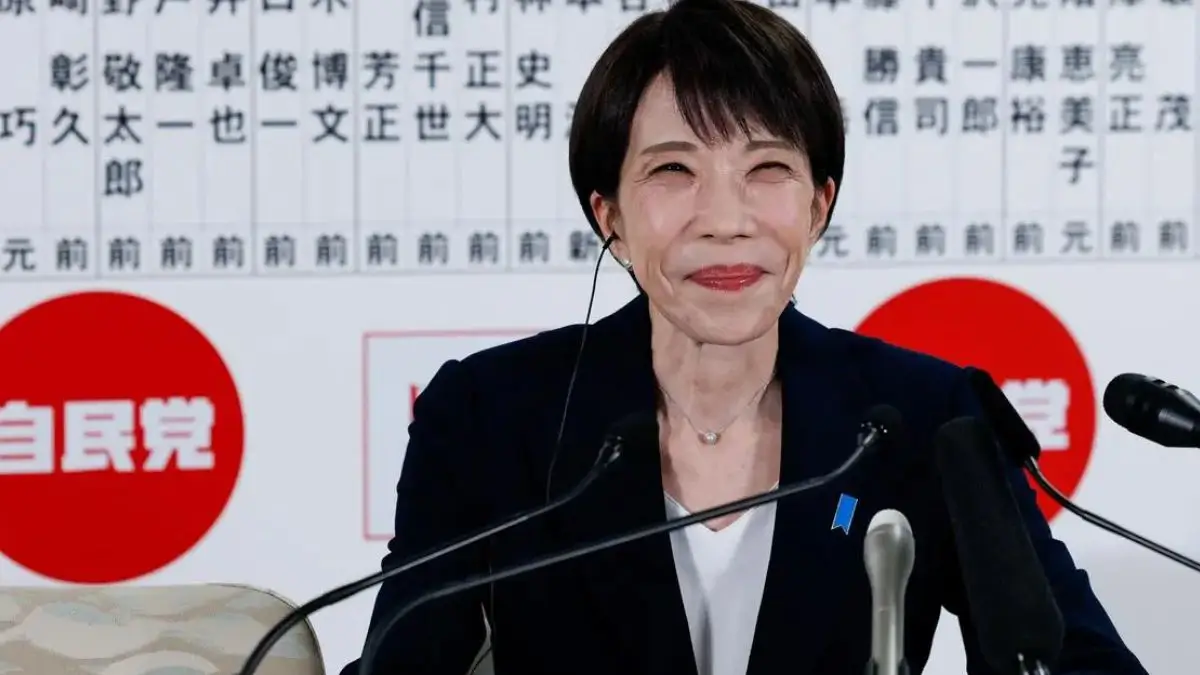Romania’s Far-Right Pro-Russian Shift Sparks Alarm for EU and NATO
Introduction: Romania’s Political Shift and its Global Impact
Romania, a member of the European Union (EU) and the North Atlantic Treaty Organization (NATO), has recently seen a significant political shift that has caught the attention of both regional and global powers. The country’s growing far-right political movements, which increasingly lean towards pro-Russian rhetoric and alliances, have raised alarms within the EU and NATO. This shift marks a pivotal moment for Romania’s foreign policy, especially regarding its stance on Russia and its role within the broader European security framework.
Romania’s Political Landscape and the Rise of the Far-Right
Over the past few years, Romania has witnessed the rise of far-right political factions that advocate for closer ties with Russia, a stark contrast to the country’s historical alignment with the West. These movements are fueled by concerns over Romania’s domestic challenges, including economic disparities, corruption, and dissatisfaction with traditional political elites. In addition, the far-right is appealing to a portion of the population that feels alienated from the EU’s progressive policies, particularly those related to social issues and governance.
The Pro-Russian Shift: Implications for Romania’s Foreign Policy
Romania’s increasing inclination towards pro-Russian positions threatens to destabilize its standing within the EU and NATO. The far-right’s pro-Russian shift is seen as a divergence from Romania’s previous foreign policy, which emphasized strengthening ties with the West. This change in political sentiment is particularly concerning for both the EU and NATO, which view Russia as a geopolitical adversary, especially after the ongoing conflict in Ukraine. Romania’s position on Russia has been a significant point of tension, and this shift could signal a weakening of Romania’s commitment to the EU and NATO’s collective defense strategy.
EU and NATO’s Reaction to Romania’s Shift
The European Union and NATO have expressed concerns over Romania’s pro-Russian turn, warning that such a move could have severe repercussions on the security and unity of the alliance. Romania’s commitment to NATO’s defense principles and EU policies could be questioned if the far-right’s influence continues to grow. Both organizations have historically relied on Romania as a reliable ally in the region, and any deviation from this stance could undermine efforts to counterbalance Russia’s influence in Eastern Europe. Consequently, the EU and NATO are closely monitoring Romania’s political developments to assess the potential risks to regional stability.

Why This News is Important
Impact on European Unity and Security
Romania’s far-right shift towards Russia has serious implications for European unity and security. As a NATO member, Romania plays a vital role in the collective defense framework, especially in Eastern Europe, where tensions with Russia have been escalating. Any political realignment towards Russia could weaken NATO’s resolve and hinder the EU’s ability to present a united front against Russian aggression. This shift threatens to embolden Russia and complicate the West’s efforts to deter further destabilization in the region.
Potential Domino Effect on Other Eastern European Nations
Romania’s political shift could also set a dangerous precedent for other Eastern European countries that are part of the EU and NATO. Several nations in this region have populations that are increasingly disillusioned with the EU’s governance and policies. If Romania’s pro-Russian stance gains more traction, it might inspire similar movements in other Eastern European countries, further fracturing the EU and NATO’s cohesion. The potential for a domino effect could destabilize the entire European security architecture.
Economic Implications for Romania and the EU
Romania’s political shift could also have significant economic consequences. As a member of the EU, Romania benefits from access to the European single market, EU funding, and trade agreements. A pivot towards Russia might jeopardize these economic benefits, leading to a decline in foreign investments and economic growth. Additionally, the EU might reassess its economic ties with Romania if its political landscape becomes more aligned with Russian interests, potentially resulting in economic isolation or sanctions.
Challenges to Romania’s Domestic Politics
The far-right movement’s rise in Romania is also indicative of broader challenges in the country’s domestic politics. Economic inequality, unemployment, and dissatisfaction with political elites have driven many Romanians to embrace populist rhetoric. The pro-Russian shift could exacerbate internal divisions, with growing polarization between those advocating for a stronger European and NATO-oriented path and those seeking closer ties with Russia. This could lead to increased political instability, which would further undermine Romania’s ability to address critical domestic challenges.
Historical Context: Background Information on Romania’s Political Shift
Romania has long been a strategic partner for both the European Union and NATO, dating back to its accession to both organizations in the mid-2000s. The country’s foreign policy has traditionally favored the West, particularly in opposition to Russia’s geopolitical ambitions. Romania has been an active participant in NATO’s collective defense initiatives, including the alliance’s role in the security of Eastern Europe and the Black Sea region.
However, the political dynamics in Romania began shifting in recent years, particularly after the 2014 annexation of Crimea by Russia and the ongoing conflict in Ukraine. The pro-European sentiment that initially defined Romania’s foreign policy began to erode, particularly among the far-right political factions. Economic troubles, coupled with a distrust of the EU’s policies, contributed to the rise of pro-Russian rhetoric.
Romania’s previous support for EU sanctions against Russia and its alignment with NATO’s stance on Russia seemed to be weakening, signaling a broader regional trend in which Eastern European countries, disillusioned with the EU, began to reconsider their strategic priorities. Romania’s recent shift reflects a broader geopolitical struggle in Eastern Europe, where political ideologies are increasingly influenced by global powers such as Russia.
Key Takeaways from Romania’s Far-Right Pro-Russian Shift
| S. No. | Key Takeaway |
|---|---|
| 1 | Romania’s far-right political movements are leaning towards pro-Russian policies, creating concerns for the EU and NATO. |
| 2 | The shift threatens to weaken Romania’s role in NATO and its commitment to collective defense against Russia. |
| 3 | The pro-Russian trend could inspire similar movements in other Eastern European nations, destabilizing the EU and NATO. |
| 4 | Romania’s pivot could lead to economic repercussions, as it may jeopardize its access to EU benefits and trade agreements. |
| 5 | The shift is indicative of broader domestic challenges in Romania, including economic inequality and political disillusionment. |
Important FAQs for Students from this News
What is Romania’s current political shift regarding Russia?
Romania has experienced a rise in far-right political movements, which advocate for closer ties with Russia. This shift contrasts with Romania’s previous alignment with the European Union (EU) and NATO, which have been critical of Russia’s actions in Eastern Europe.
Why is Romania’s pro-Russian shift a concern for NATO and the EU?
Romania’s increasing pro-Russian stance is concerning because it undermines NATO’s collective defense strategy and the EU’s unity against Russian aggression. Romania has been a key ally for both organizations, and this shift could destabilize Eastern Europe’s security framework.
How might Romania’s political shift affect its relationship with the EU?
Romania’s pro-Russian shift could lead to strained relations with the EU, possibly affecting Romania’s access to EU funding, trade agreements, and political cooperation. This could isolate Romania economically and politically from its European partners.
What domestic issues in Romania contribute to the rise of the far-right?
Romania’s domestic challenges, such as economic inequality, corruption, and dissatisfaction with political elites, have fueled the growth of far-right movements. These movements offer populist solutions that appeal to those dissatisfied with traditional political structures.
What are the implications of Romania’s political shift on other Eastern European nations?
Romania’s pro-Russian political shift could inspire similar movements in other Eastern European countries, which may lead to fragmentation within the EU and NATO. This could pose a long-term challenge to European unity and security.
Some Important Current Affairs Links

















